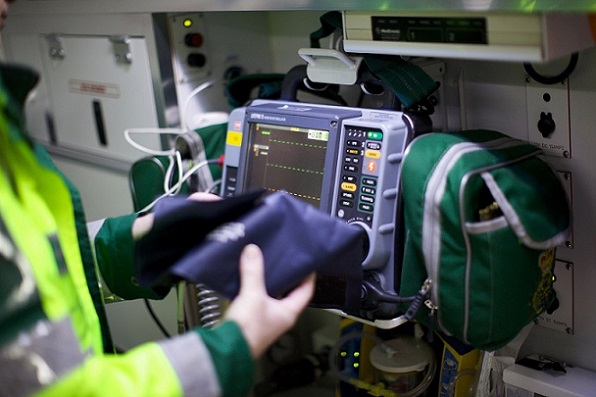LONDON – Dr. Hadiza Bawa-Garba is a British Muslim pediatrician who, while working in the NHS, was convicted for homicide, after a child, Jack Adcock, who was born with Down’s syndrome and had a heart condition, was admitted to hospital and died of sepsis at Leicester Royal Infirmary in 2011.
Struck off in January 2018, the case sent shockwaves across the medical community, as despite having made an error, admitting to the error, and learning from the error, Bawa-Garba ended up being a convenient scapegoat for a chronically underfunded NHS.
Jack’s death is a tragedy which may have been avoided, and our prayers are for him and his family who have suffered.
Speaking to ITV News, Nicola Adcock, Jack’s mother said, “It makes a mockery of the justice system. If she’d have done what she should have done that day I know my son would still be here 99.9% and I will never budge from that.”
The Court of Appeal ruled that she should be able to return to work and that the High Court was ‘wrong’ to strike her off the medical register, and the General Medical Council (GMC) said that it would not challenge the judgment.
“We are all Hadiza Bawa-Garba,” writes Dr. Sheri Brown in The Guardian. Providing context she writes, “…told that your colleague couldn’t be in today, and could you please do their work too? You find your boss is uncontactable, the other members of your team all started two weeks ago and are just finding their feet, and the IT systems are down.”
“Someone else, in a different team, makes a mistake for which you are punished, and at the end of a grueling workday you make an entirely avoidable error, which has catastrophic consequences.”
Dr. Brown added, “Can we blame individual doctors for an outcome that has occurred in a working environment that no sane person would find acceptable?”

Systematic Failure
Commenting on the case, Dr. Harun Khan writes, “It is increasingly evident the GMC has scapegoated Hadiza for systemic failings with the NHS – creating a place that can be very unsafe for doctors and patients alike.”
“There is a strong concern amongst black and minority ethnic doctors in the UK who feel they are more likely to be formally disciplined by the GMC solely because of their race… Not only is Hadiza’s identity, as a black, Nigerian, hijab-donning Muslim woman, heavily politicized in media articles across the board – subjecting her to racist, Islamophobic and misogynistic vitriol online, the GMC has, on several occasions, declined to charge white doctors who have been involved in very similar cases.”
Earlier this year, the Muslim Doctors Association said, “As medical practitioners, we are becoming all too familiar with the disjointed, understaffed, chronically underfunded and sometimes dangerous conditions that NHS staff are forced to work under every day.
“The report published by Leicester Royal Infirmary, where Dr. Bawa-Garba worked, highlighted 23 recommendations and 79 actions that were instituted by the Trust following this tragic episode. While errors were made by Dr. Bawa-Garba, it seems disproportionate for her to be held responsible for complex systemic failures.”
Dr. Chandra Kanneganti, chair of the British International Doctor’s Association (BIDA), said the GMC had been wrong in taking the case to court and it was not right to ’scapegoat one doctor for the failures in the system.’”
While Dolin Bhagwati, a neurosurgeon added, “The indisputable fact is that a child died in traumatic circumstances that may have been avoided. Part of the problem is that the reporting of such cases encouraged blame to be pinned on one or two individuals rather than addressing the systemic faults that allowed such issues to arise.”
Charlie Massey, the chief executive of the GMC writes, “While the GMC is not responsible for decisions to prosecute gross negligence manslaughter cases, we have reflected on what we can do to address the concerns we’ve heard about this case. Doctors have rightly challenged us to speak out more forcefully to support those practicing in pressured environments, and that is what we are increasing our efforts to do.”

Paramedic and heart monitor
Support
Dr. Bawa-Garba is not the first doctor to have made a mistake and she will certainly not be the last one.
As some have suggested, her race, and perhaps her religion, may have been a motivator in pursuing a legal course of action against her, instead of addressing failures caused by the underfunding of the health service. Whatever the reason, medics have rallied around her, supporting her, for this could have happened to anyone.
What this case with Dr. Bawa-Garba has shown is that a woman who became a convenient target has instead become part of an on-going process to improve standards in our health system, which may in turn directly help save other lives.
Speaking to the BBC, Dr. Bawa-Garba said, “I’m very pleased with the outcome, but I want us to pay tribute and remember Jack Adcock, a wonderful little boy who started this story. I want to let the parents know that I am sorry for my role in what has happened to Jack.”
“I’ve dedicated my life to medicine, it is my purpose. I can’t see myself being anything else but a practicing doctor serving the community. So of course when I go the news that I can be given the opportunity to work again, I was very pleased and I thank God for this day.”
